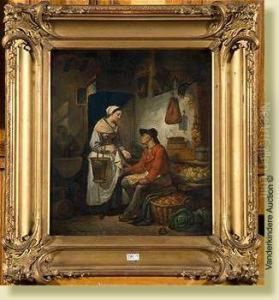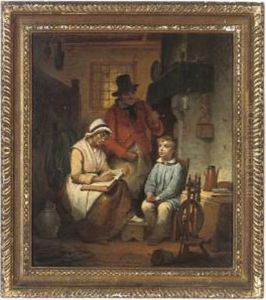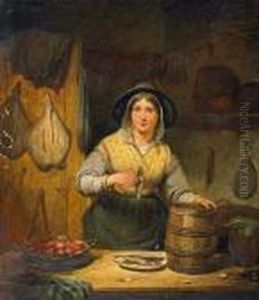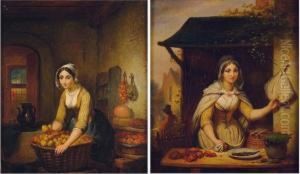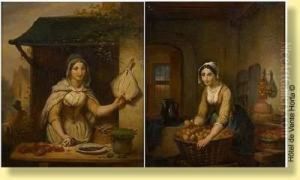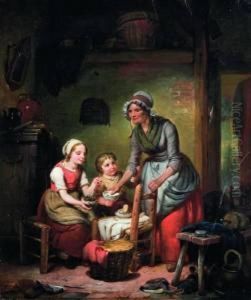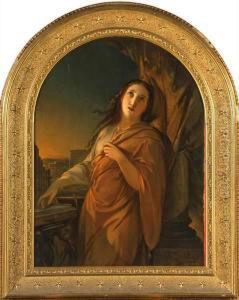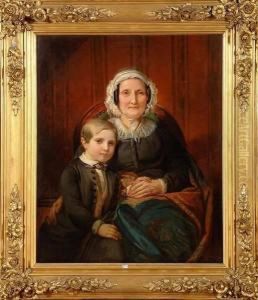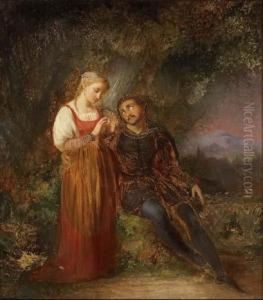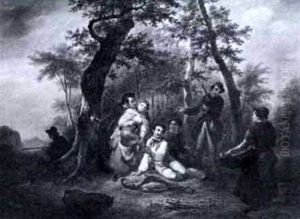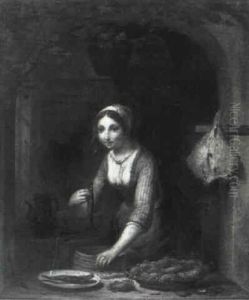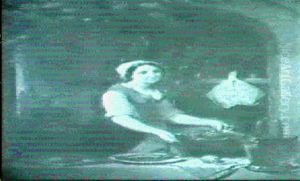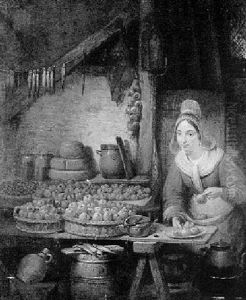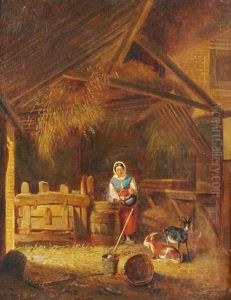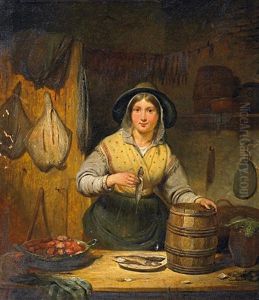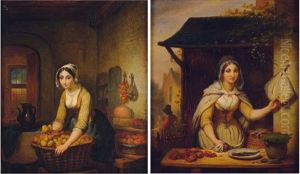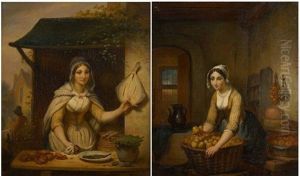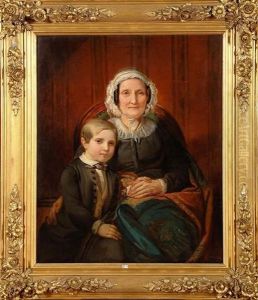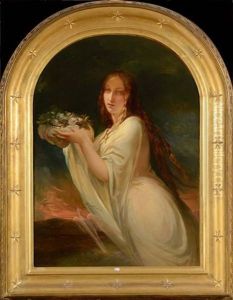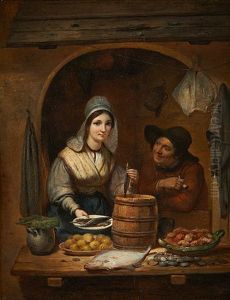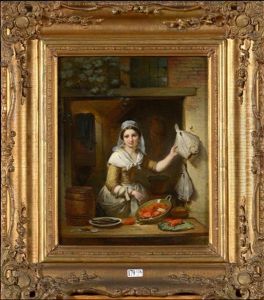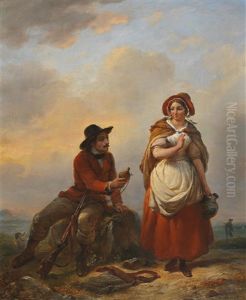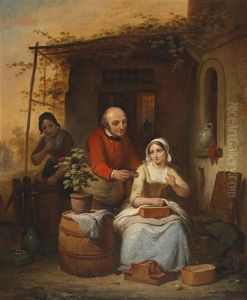Jean Baptiste Van Eycken Paintings
Jean Baptiste Van Eycken was a 19th-century Belgian artist known for his detailed and evocative historical paintings, landscapes, and portraits. Born in 1809 in Brussels, in the United Kingdom of the Netherlands (now Belgium), Van Eycken was part of a period in European art history that saw the rise of Romanticism, which emphasized emotion and individualism as well as glorification of the past and nature.
Van Eycken received his formal art education at the Academy of Fine Arts in Brussels, where many European artists of the time were trained. During his career, he became known for his meticulous attention to detail and his ability to convey narrative through his works. As was common among artists of his era, Van Eycken's subjects often took on a romantic quality, depicting scenes from history with a dramatic flair that captured the viewer’s imagination.
Despite his talent, Jean Baptiste Van Eycken did not achieve the same level of fame as some of his contemporaries. His works, however, were appreciated for their craftsmanship and historical value, providing a visual complement to the interests of the time in history, literature, and the grandeur of nature. Van Eycken was a part of the Belgian artistic community at a time when the country was establishing its own identity, having gained independence from the Netherlands in 1830.
Van Eycken's life was relatively short; he died in 1853 at the age of 44. The cause of his death is not widely documented, which is not uncommon for artists of the period who were not of the highest echelon of fame. Nevertheless, his contributions to Belgian art were significant in the context of the development of a national style and the Romantic movement in Northern Europe. Today, his works can be found in museums, and they continue to be studied for their historical relevance and technical proficiency.
